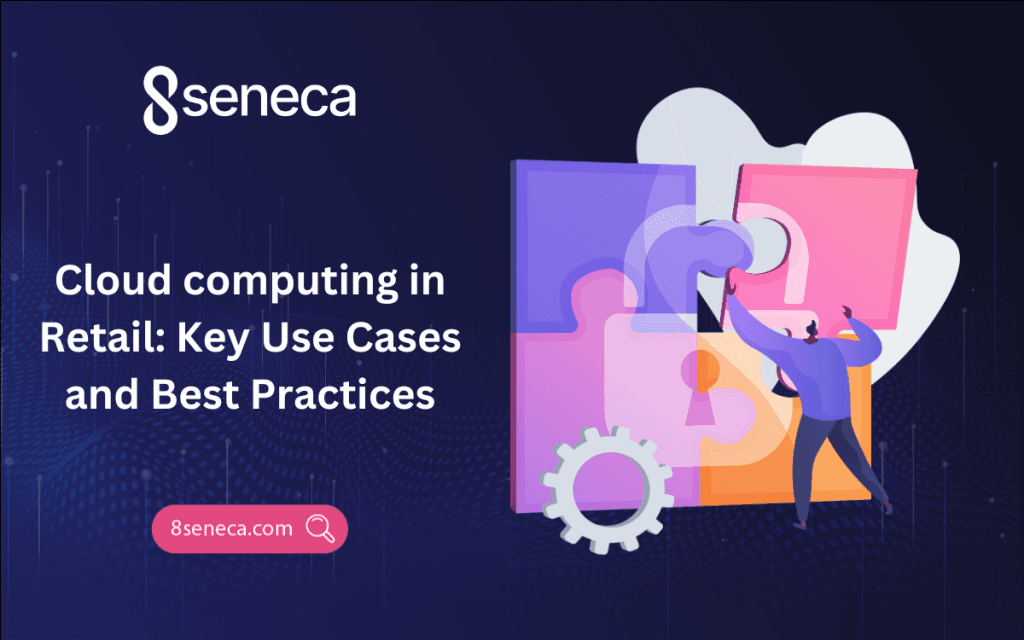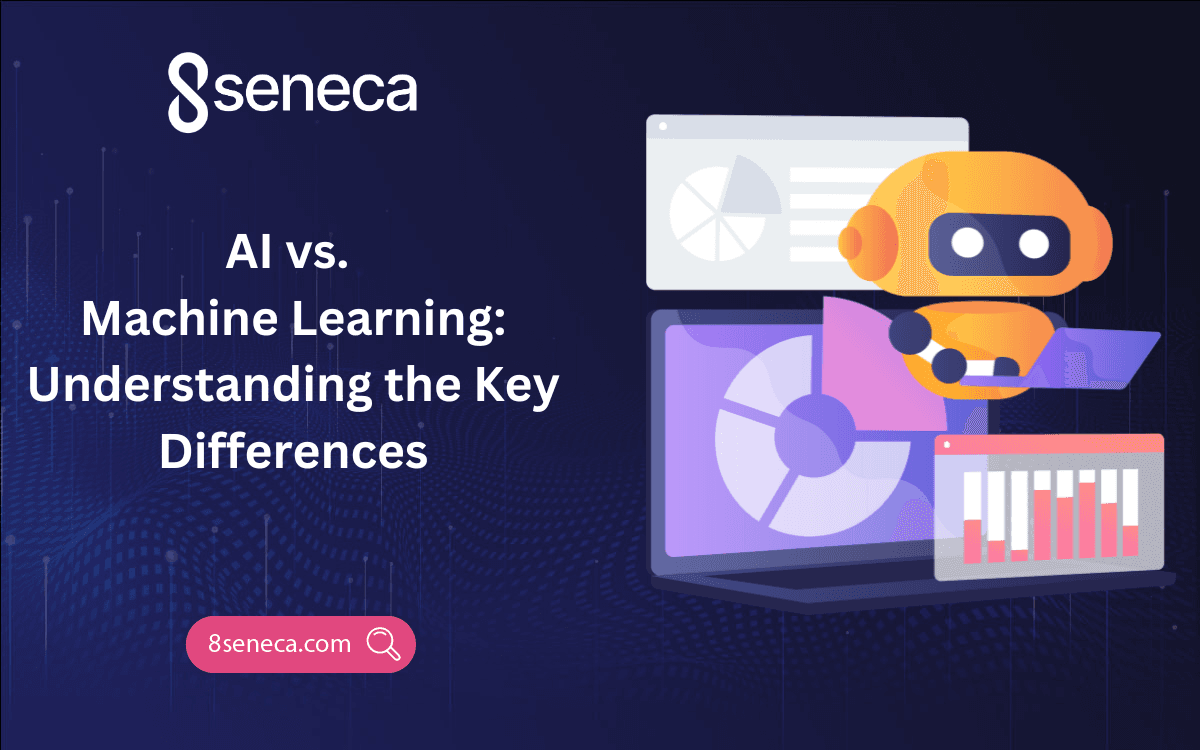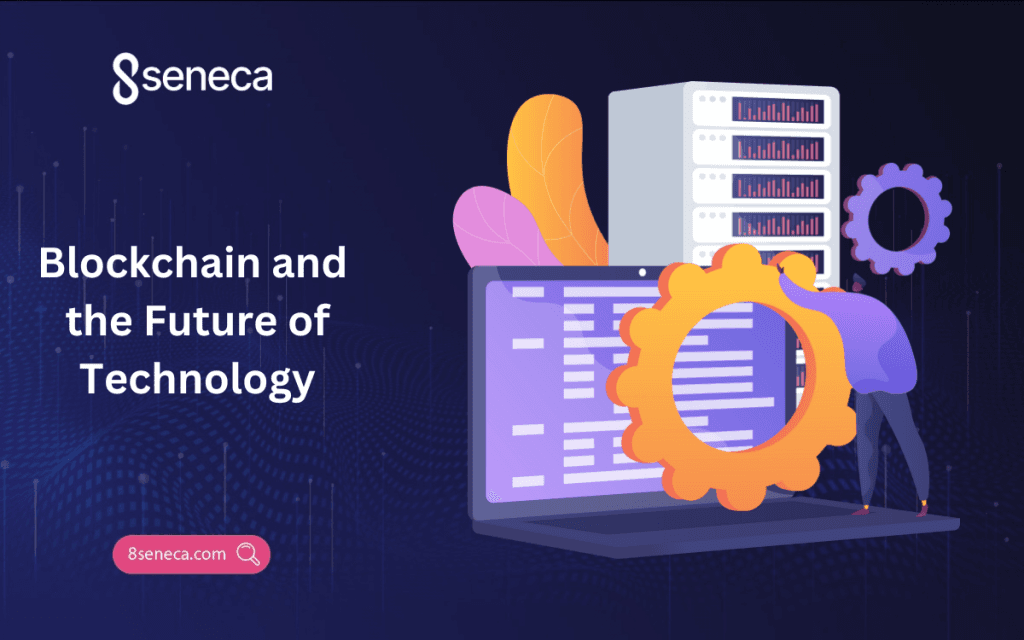Artificial Intelligence in Business: Real-world Examples
Explore impactful real-world examples of Artificial Intelligence in business. Learn how AI is transforming operations and driving innovation.
The past decades have witnessed a remarkable progression in artificial intelligence (AI). It’s rapidly transforming the business landscape, streamlining processes, boosting efficiency, and even rewriting the rules of customer engagement. This article dives into real-world examples across various industries to illustrate its tangible impact on the business world. Dive in and discover how AI is revolutionizing operations, driving growth and shaping the future of commerce.
The Rise of Artificial Intelligence
The rise of artificial intelligence has ignited a global conversation: are we on the precipice of a utopia powered by intelligent machines, or is this the dawn of an uncertain future? While the debate continues, one thing is undeniable: AI is already transforming the business world at an extraordinary pace.
From data-driven decision-making to automated processes, AI is empowering companies to operate with greater efficiency and unlock new possibilities. Its ability to surpass human performance in some areas, like analyzing vast datasets or performing repetitive tasks is undeniable.
6 Major Uses of AI In Real-world Business
Instead of simply automating tasks, AI excels at enhancing processes like logical analysis, knowledge sharing and goal setting. It even improves communication efficiency and how we interpret and handle information. This transformative power is evident across various industries and this section dives into the top 6 sectors poised for revolution by AI applications and upcoming trends. Get ready to explore how intelligence is reshaping the business landscape!
Sales
Achieving sales success, particularly in B2B is challenging The process of closing deals takes time, and conversion rates tend to be low. Customers don’t readily make purchases; they require guidance and validation. To foster a strong relationship with your customers, invest time in meeting them, addressing their queries and consistently offering guidance thereafter.
Improvements in sales processes can be achieved through the implementation of artificial intelligence. According to Harvard Business Review, sales campaigns utilizing AI resulted in a more than 50% increase in leads, a reduction of call times by 60-70% and a cost reduction ranging from 40-60%.
As a sales leader, you might encounter claims that artificial intelligence is ready to dominate the world. Envision a scenario where affordable yet efficient AI assistants manage all sales tasks. However, current AI capabilities fall short in handling the intricate conversations and relationship-building crucial in sales. Consequently, Gartner anticipates that only 30% of B2B companies will incorporate some form of AI to enhance specific aspects of their core sales operations.
Currently, artificial intelligence aims not to replace sales reps but to function as an assistant in accomplishing the following tasks:
- Automate tasks that are repetitive, like data entry and scheduling meetings, and complex tasks that don’t require human interaction
- Enhance sales performance by highlighting patterns in customer responses and helping them prioritize their efforts.
- Assist team leaders with a comprehensive analysis of all emails, phone calls and chats between sales representatives and potential customers. While sending emails, you also need to focus on technical elements such as a DMARC report, email deliverability, etc.
Real Estate
If you’ve ever wondered about a property’s value, rather than navigating the complexities of finding an appraiser, consider utilizing an automatic valuation model (AVM). AVMs are commonly employed in assessing both residential and commercial real estate, aiding in mortgage and loan evaluations. Let’s explore the mechanics of an automated valuation model and its applications in the real estate industry.
Real estate professionals frequently use AVMs to assess both residential and commercial properties, assisting in the evaluation of mortgages and loans. This service employs mathematical calculations, statistical analysis, and database records to evaluate the specific value of a property. AVMs find widespread use within the real estate field.
Real estate professionals, realtors and loan officers use AVMs as a foundational tool to analyze properties. This service aims to provide accurate property value appraisals, catering to e-commerce providers and prominent online retail platforms such as iBuyers. For example, iBuyer relies on AVM for a preliminary property value assessment. Once the estimate is available, you can initiate the sale of your house without the need to engage a real estate agent or schedule meetings with potential buyers.
Real estate enterprises can also leverage AI for tailored experiences. For instance, consumers are more inclined to engage with a brand that provides personalized experiences. AI-driven bots can offer customized recommendations by considering factors such as location and language, along with clickstream data, to better understand the customer’s online real estate preferences. Integrating AI insights, these personalized interactions enhance the customer experience, boost conversions and open avenues for cross-selling and upselling opportunities based on analytics.
Marketing
AI is commonly integrated into marketing to enhance team performance and handle tasks that require less human nuance. This results in more personalized marketing efforts across various channels, such as websites, emails, social media posts, and videos, improving the overall customer experience. Employing the fastest hosting services is also recommended to convert website visitors into loyal customers.
For instance, eCommerce businesses benefit from making push notifications mobile-friendly, as they create a sense of personalization among customers. Well-executed push notifications delivered via mobile gain more attention, as each customer receives a customized message based on their preferences or previous interactions with the brand. Additionally, AI-powered product recommendations are an effective technique for providing highly personalized customer experiences beyond traditional marketing strategies.
Customer Support
Let’s discuss three benefits of employing artificial intelligence to help your customer support team.
Swift responses: AI has the capability to promptly address frequently asked or straightforward inquiries through live chat interactions. It can also guide customers to self-service articles for additional information. Moreover, AI-driven support is accessible 24/7, ensuring customers can seek assistance from your company at any time.
Improved research efficiency: Although research processes are typically time-consuming, leveraging research automations powered by AI can expedite the procedure. For instance, AI technology allows for the storage of answers and identification of seldom-asked questions, providing agents with a roster of standard solutions based on the content of the inquiry.
Elevated customer engagement: AI can amalgamate information from CRM solutions, highlighting crucial customer details and instantly providing them to agents. This equips agents with the necessary information to engage with customers more efficiently.
In essence, AI is not intended to replace customer support teams but rather to augment their effectiveness. While artificial intelligence can efficiently retrieve information, it cannot substitute or replicate human relationships. Nonetheless, incorporating AI into support teams can enhance their productivity and strategic thinking.
Human Resource
Developers have introduced a diverse array of products. Employing the right tools will enable your HR managers to streamline their daily workflows, reducing the time spent on each task. The acceleration in speed will not compromise the quality of work. Consequently, employees will exhibit enhanced productivity and precision.
Integrating an AI-based tool empowers your HR managers to:
- Assess and shortlist thousands of candidates in half the usual time.
- Compile information and synchronize extensive datasets efficiently.
- Utilize social media to gather comprehensive information about candidates.
- Engage with applicants through conversational chatbots.
- Incorporate facial expressions, body language, and vocal tone in job interviews.
- Manage employees, benefits and leaves seamlessly with an automated system.
The outcome is that the adoption of AI-based tools results in expedited work processes and improved outcomes. By leveraging these tools, your employees can handle large volumes of data in less time, achieving superior results more swiftly compared to manual processing.
Daily Business Operation
AI helps companies stay one step ahead of their competitors, from repetitive tasks to data analytics. Additionally, AI also improves risk management and provides a better user experience.
AI helps businesses identify their targeted customers by analyzing their purchasing habits. Consequently, the process is simplified and more efficient. The result is a reduction of the costs associated with the process.
Conclusion
In conclusion, the real-world applications of Artificial Intelligence (AI) in business showcase its transformative impact across various sectors. From streamlining operations and enhancing productivity to revolutionizing customer interactions, AI has become an indispensable ally for enterprises seeking innovation. As organizations continue to integrate AI solutions, the evolving landscape promises sustained advancements, signaling a future where intelligent technologies redefine the way businesses operate and thrive.
8seneca specializes in providing B2B services, with a strong emphasis on IT outsourcing solutions. If you’re looking for IT outsourcing services, please reach out to us. Furthermore, we’re actively seeking skilled PowerBuild Programmer to join our team. You can explore job descriptions and other career opportunities within our company here.
Related Articles

Jan 14, 2025
Read more
Will Decentralized Social Media Take Over in 2025?
Explore if decentralized social media could reshape online interactions in 2025 with greater privacy and control.

Jan 08, 2025
Read more
What You Need to Know About Zero-Trust Architecture
Learn the essentials of Zero-Trust Architecture: how it enhances cybersecurity by verifying every user and device.

Oct 07, 2024
Read more
Cloud Computing in Retail: Key Use Cases and Best Practices
Cloud computing helps retailers optimize operations, streamline inventory, and improve decision-making with real-time data.

Sep 27, 2024
Read more
How Hybrid Smart Contracts Revolutionize Blockchain Technology
Discover what hybrid smart contracts are and how they are revolutionizing blockchain technology, including key benefits and challenges.

Sep 25, 2024
Read more
AI vs. Machine Learning: Understanding the Key Differences
Learn the differences between AI and ML, their impact on business, and how to leverage them effectively in business.

Aug 14, 2024
Read more
Blockchain and the Future of Technology
Explore how blockchain technology is revolutionizing industries like finance, healthcare, and supply chain management.
